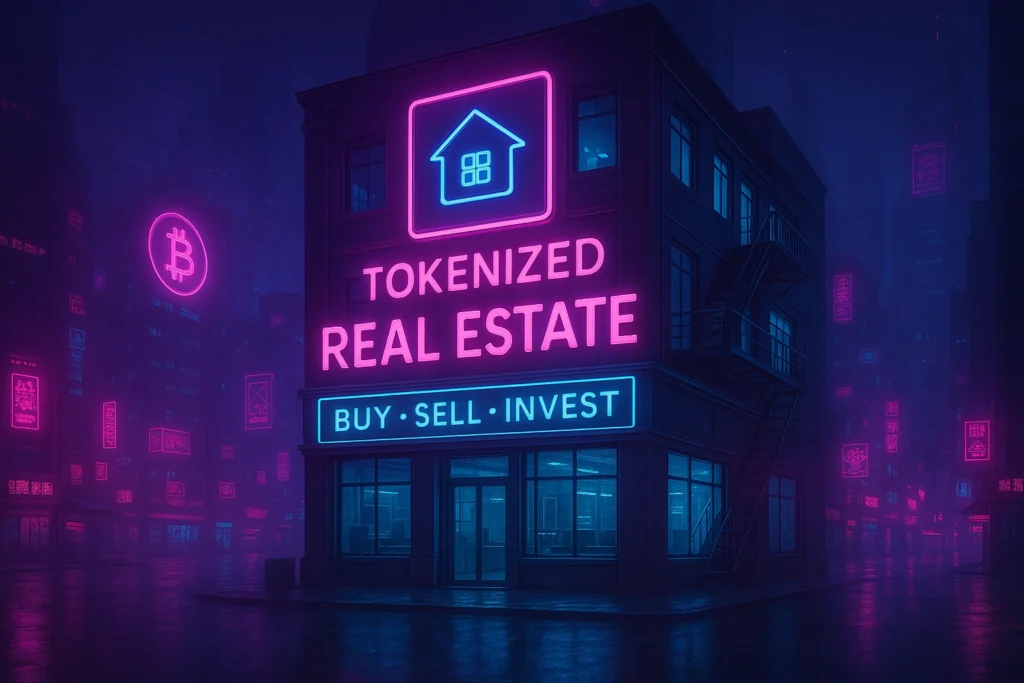Tokenized Real Estate Sounds Slick—But Is It All Just Risky Hype?
Real estate RWA risk: is tokenized real estate too good to be true?
Let’s cut through the noise: tokenized real estate is either the future of property investing—or another clever mirage wrapped in blockchain buzzwords. Sure, the concept of slicing up physical real estate into tradable digital tokens sounds revolutionary. But before we all start buying fractions of someone’s rental property in Miami, maybe we should ask: what’s the real estate RWA risk here?
Because let’s be honest—any time something offers high liquidity, low barriers, and global access in one slick package, there’s usually a catch. Or several.
Tokenized real estate isn’t new. But its risks are wildly underplayed.
Here’s the elevator pitch: turn a building into digital tokens on a blockchain. Anyone can buy a piece, no middlemen needed. Sounds like a win for access and efficiency, right?
Maybe. But here’s what the headlines miss: the building doesn’t change. It still needs plumbing repairs, has delinquent tenants, and is subject to the whims of the local housing market. Slap all the blockchain on it you want—it’s still real estate, with all the mess that comes with it.
The danger is that investors start treating these tokens like crypto—fast, speculative, anonymous. They forget that what’s backing those tokens is a leaky roof in a real neighborhood with real taxes.
That’s not innovation—that’s setting the stage for confusion. Or worse, another asset bubble built on misunderstanding.


Real estate RWA risk isn’t just about price—it’s baked into the system
Let’s talk structure, because this is where things get murky fast. What exactly are you buying with a real estate token? Equity? Debt? A right to income? A legal share of a building or just a synthetic exposure?
Different platforms offer wildly different models. And most of them market heavily to people who don’t read the fine print—because it’s written in legalese or buried under flashy graphics promising “5%+ yield.”
Even more concerning? Regulators are miles behind. In some countries, these assets live in legal limbo—too novel for real estate laws, too real for crypto ones. That leaves investors holding a token that may or may not give them actual legal rights if things go sideways.
And believe me—things will go sideways at some point. Real estate always has cycles. Platforms fail. Properties lose value. So what happens when the shiny app disappears and the “token” still lives on-chain with no underlying value?
These are not hypotheticals. These are the kinds of messes that blind optimism invites.


Is tokenized real estate the future? Possibly. But don’t get starry-eyed.
I’m not against innovation. Let’s be fair—traditional real estate is clunky, expensive, and painfully exclusive. Tokenization could solve real problems: it opens doors to small investors, enables global access, and might even shake up a rigid system.
Platforms like RealT and Lofty are testing the waters with interesting results. Some investors are making consistent income. Some properties are gaining traction. There’s something there, no doubt.
But just because something is new doesn’t mean it’s trustworthy. And calling it “democratization” doesn’t make it safe. If anything, these platforms need even more scrutiny—because they’re dealing with real money, real buildings, and real people’s expectations.


Final thought: real estate RWA risk is very real—and mostly overlooked
Is tokenized real estate a bubble? Not quite yet. But the warning signs are blinking. We’re seeing speculative behavior, vague legal protections, and a flood of platforms racing ahead of regulation.
The real estate RWA risk isn’t just a financial concern—it’s a structural one. If the average investor doesn’t fully understand what they’re buying, that’s not innovation. That’s misdirection.
So yes, explore tokenized real estate. Study it. Experiment, even. But don’t assume this is the next big thing just because it’s wrapped in tech gloss. Remember: tokens can shine, but buildings still crack.
And hype? Hype can’t hold up a roof.
Relevant Link : Understanding Real Estate RWA Risk: Is Tokenized Property the Future or Just Hype?




